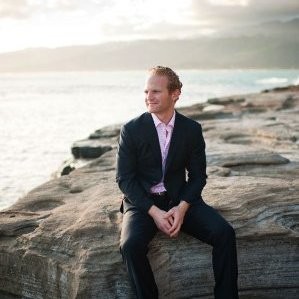
I began my career by working in the Navy and the Foreign Service between the US, China, and Colombia. Eventually, I saw my future as a cog in a political machine and decided I wanted to transition into a career where I could build and create.
So, I moved back to the US in 2014 and did a web development bootcamp. This got me excited about software development and data science, where I’ve worked since.
The move to undertake a learning sabbatical was driven primarily by my desire to work in machine learning and finance. I had been contacted by recruiters for trading firms and passed a few technical interviews but hadn’t gotten the jobs. I believed spending time focusing on the subject matter would do the trick.
Another motivation was that I was getting older and didn’t like living with the feeling of not following through on my desire to work in machine learning and finance. Comfort and stability are important but I didn’t want fear to limit my potential.
I considered doing a traditional academic program. However, I looked at the curriculums and they did not cover what I wanted to learn. It wasn’t about money since as a veteran, tuition would have been covered by the GI Bill. I just couldn't imagine spending time to learn things that I saw as outdated and irrelevant.
When I started working in data science, I stumbled on a website: DataScienceJourney. It was put together by a developer who spent 6 months self-studying data science in Thailand. He planted the seed in my mind of what's possible. I cold emailed him and he was super helpful.
Inspired by this, I planned 4-6 months of self-study and chose to do it in Bali.
The coworking spaces in Bali are extremely effective at providing community and fostering a support system. Because they’re filled with freelancers, the environment is supportive of self-led behavior. I highly recommend Tropical Nomad or Dojo Bali.
I also trained at several gyms in Bali and met lots of great people. Honestly, it was a wonderful place to grow my social network.
I went through the Udacity Artificial Intelligence for Trading MOOC along with a course run by Python Quants. I also read several python focused derivatives trading books written by Yves Hiplisch who built the Python Quants moocs. Finally, I worked through some of the Advances in Financial Machine Learning book written by de Prado. A few seminars and conferences came up mid sabbatical which complemented the whole experience.
Motivating myself wasn’t hard because I had a vision, a purpose, and a deadline. I treated the sabbatical like work and did everything I would’ve done had I been working.
I also withheld rewards until I completed major milestones. For example, I’m an avid surfer and didn’t let myself surf until almost three months into the sabbatical, once I completed major milestones. This was tough because the waves were very good and I would normally surf everyday in such scenarios.
Finding feedback while learning was a real problem. I completed the Udacity program much faster than I was expecting. I took this as a positive sign that my skills were in good shape. They provide formal feedback for the work you submit which is quite helpful. However, outside of this I did not really have a sense of my progress.
Going to Bali, the foreigners I met were, for the most part, doing the same thing I was. They were taking advantage of what the internet had to offer.
I discovered that my vision of the future, one in which learning sabbaticals are common, is already here. It’s like the line that says, “the future is here, it’s just not widely distributed”.
The surprise for me occurred when I came back to the US and tried to explain what I experienced to employers and recruiters. They struggled to understand or appreciate it. This continues to surprise me.
I’ve decided that if I have to overly justify the purpose of my trip to a recruiter or employer, they may not be the type of organization that I can work with.
I think the critical piece with a learning sabbatical is legitimizing the experience. To that end. I would have done lots more documenting, blogging, tweeting, etc. Completing books and courses isn’t enough. It’s critical to produce some kind of content that demonstrates what it is you’ve accomplished.
In addition, it would have been good to join a group that helped me document, organize, and share how I spent my time. I’m currently a member of a slack group for Machine Learning in Finance and another for Automated Trading. I could have used them to amplify my work and also bring them publicity.
The critical piece that I had not thought through was the power of networks and the positive role they can play in the learning process. I would have tried to get more support from people.
I’m currently working as a data engineer for an AI and ML consultancy, although I’m still trying to make the transition into finance.
While I haven’t yet gotten the finance-centric role I sought, I’ve had interviews with some of the biggest funds in the world. Coming from a completely different career not too long ago, I feel that this in itself is quite an achievement.
Here is my Linkedin and Instagram if you’d like to reach out to me.